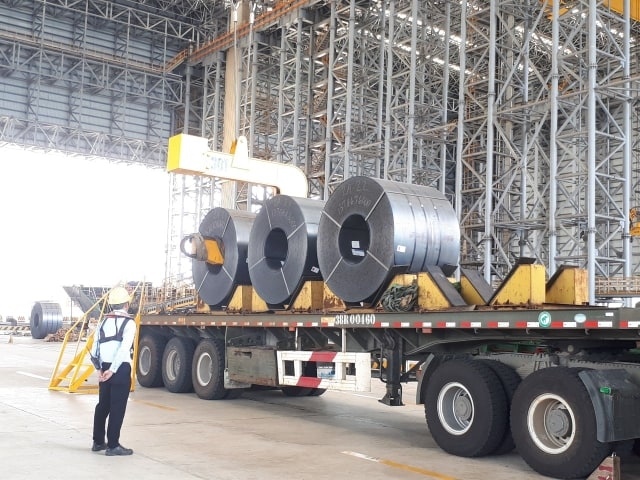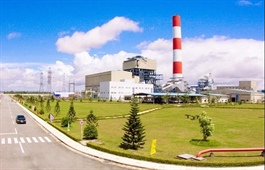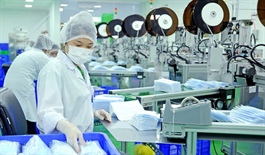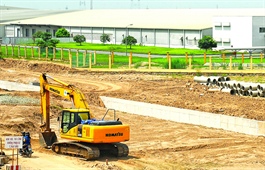Businesses in Ho Chi Minh City wallowing in lack of capital and high production costs
Businesses in Ho Chi Minh City wallowing in lack of capital and high production costs
Due to the impact of the COVID-19 pandemic, most businesses in Ho Chi Minh City face a shortage of capital while production costs are increasing.
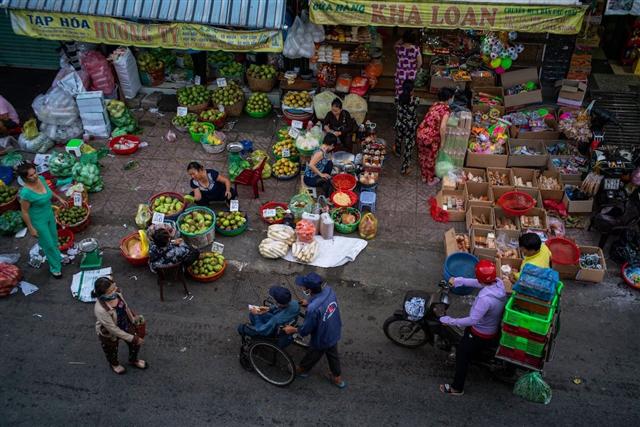
The number of businesses in Ho Chi Minh City suspending operations in the first five months of this year increased by nearly 24 per cent. Photo: Nhan Tran
|
“The pandemic situation in the area is still complicated,” Nguyen Thanh Phong, Chairman of Ho Chi Minh City People's Committee, said in the meeting between the committee, the city's leaders, experts, and businesses.
Regarding business activities, since the beginning of the year, 1,365 businesses have reported difficulties due to the pandemic, more than 42,500 workers lost their jobs or stopped working, 410 businesses needed loans to pay wages to workers, and 2,274 enterprises completed dissolution procedures.
The chairman expects the business community and people in the area to join the government to overcome this difficulty. He stated that, currently, Ho Chi Minh City has to spend about VND7 billion ($304,350) a day on testing. The city's goal is to vaccinate its entire population.
“It is very difficult to access vaccines now because supply still cannot meet the demand," Nguyen Van Nen, Secretary of Ho Chi Minh City Committee said and urged people who know of guaranteed vaccine supply to contact the city.
Meanwhile, Le Thi Huynh Mai, director of Ho Chi Minh City Department of Planning and Investment, said that in the first five months, more than 6,400 businesses resumed operations.
However, the business community is facing difficulties, with the number of enterprises registering for dissolution increasing by 5 per cent over the same period last year (2,458 enterprises) and the number of enterprises temporarily suspending operation increasing nearly 24 per cent with more than 9,800 enterprises.
There are five common difficulties that businesses are facing, including a decrease in the labour force involved in production, incurring expenses for the prevention of COVID-19, employees having their work hours cut or forced to quit, disruptions in access to customers and supply chains, and lack of raw materials for production.
Chu Tien Dung, head of the Ho Chi Minh City Union of Business Associations (HUBA), expressed concerns, saying that more businesses withdrew from the market in the first two quarters than those entering.
A quick online survey of over 100 businesses by HUBA showed that over 84 per cent of small- and medium-sized enterprises have been facing difficulties since the fourth outbreak of COVID-19. Accordingly, 40 per cent of respondents claimed to have had difficulties from a lack of capital, 80 per cent from market disruptions, 52 per cent from downsizing employment, 14 from interruptions to raw material supply chains, and more than 50 per cent suffered from social distancing measures.
Although some enterprises in key industries have quickly reconnected the source of raw materials and re-adjusted their operations, they are facing the biggest pressure from the lack of capital and the rising price of raw materials, raising manufacturing costs and reducing competitiveness.
Many businesses want to restructure, apply new technologies, or digitally transform to promote online shopping, but lack capital for it.
"The first support packages for businesses and employees were timely but the implementation has not had a clear impact on businesses. Some policies such as tax exemption, social insurance reduction have helped businesses reduce difficulties in terms of liquidity and cash flow, but the application time is short and the number of these packages is not large, so it cannot help businesses overcome their difficulties," said Dung.


